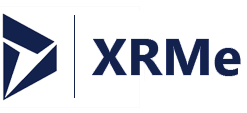
Sharepoint è uno strumento che non ha bisogno di presentazioni.. negli ultimi anni ha raggiunto una tale maturità da spingere molteplici aziende a svilupparci sopra una intranet aziendale seria..
Ovviamente in casa Microsoft ci hanno visto lungo e avendo a disposizione uno strumento del genere per la gesione documentale (ovviamente Sharepoint non fa solo questo) hanno pensato bene di fornire l’integrazione nativa a CRM.
In questo articolo vedremo nel dettaglio in cosa consiste questa integrazione e come Sharepoint può rivelarsi un power tool per strutturare i documenti CRM.
Partiamo dal presupposto che la gestione documentale demandata a Sharepoint è un’opzione che può essere attivata per qualsiasi entità CRM (opzionalmente) e non è quindi una feature globale (on/off).
STEP 1:
Per prima cosa è necessario installare la seguente componente:
“Microsoft Dynamics CRM 2013 List Component for Microsoft SharePoint Server 2010 and Microsoft SharePoint Server 2013 (for multiple browsers)” scaricabile al seguente link:
https://www.microsoft.com/it-it/download/details.aspx?id=40345
Considerate che tale componente è stata deprecata dalla versione 2015 Update 1 ed è quindi necessario configurare l’integrazione lato server:
per completare questa operazione è sufficiente andare in Settings=>Document Management=> Enable server based Sharepoint integration, ed inserire l’URL del server Sharepoint (comprensivo del sito) che dovrà ospitare i documenti CRM.
STEP 2:
Arrivati a questo punto possiamo procedere all’abilitazione della nuova gestione documentale per le entità interessate, seguendo il seguente percorso:
Settings=>Document Management=> Document Management Settings
è possibile selezionare le entità desiderate.
A questo punto CRM, o meglio la componentente o la server syde sync in funzione della configurazione effettuata, creeranno delle document library in Sharepoint mappando le entità: supponendo di avere un account “Company XXX” in CRM avremo una document library Account con una folder “Company XXX”
A questo punto si potranno inserire documenti in CRM che verrano storati in Sharepoint con tutti i vantaggi che ne derivano:
- Check in / check out
- History
- Workflow di approvazione
- ….
Come vedete quello che stiamo trattando negli ultimi articoli è qualcosa che va ben oltre l’utilizzo “standard” di CRM, è in realtà un percorso di avvicinamento alla conferenza che terrò in coppia con Giorgio a giugno (http://www.infrastructureday.com/2016/), nella quale vedremo fin dove si può spingere CRM al fine di diventare elemento pivotale in un’archiettura aziendale sempre più integrata.
Stay tuned…



